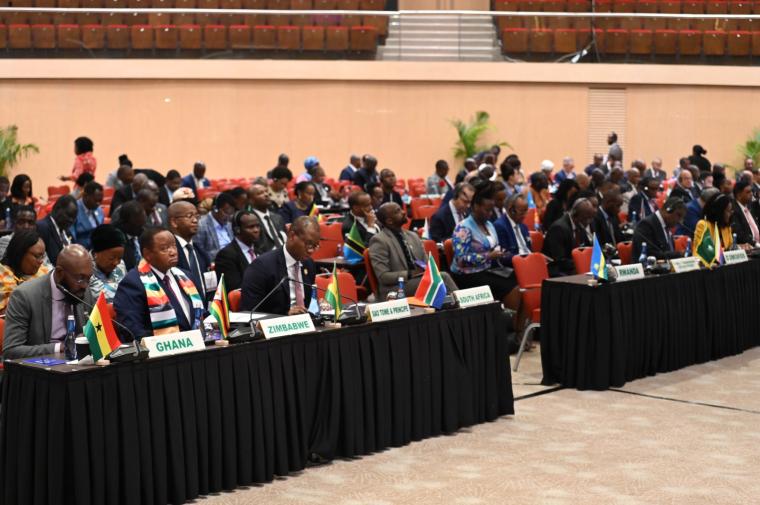African Union in the G20: a geopolitical and economic leap for the continent
Created in 2002, the African Union (AU) represents 20% of the world's territory. The regional bloc debuts this year as a permanent member of the G20, offers new perspectives for the group and strengthens the agenda of the countries of the Global South.

Until the African Union (AU) became a permanent member of the G20, South Africa was the only African country represented. Previously a guest international organization, the AU received full membership status at the G20 summit in Delhi, India, in early September 2023.
The move elevates the continent to the same status as the European Union and 19 other countries. The bloc represents around 20% of the world's territory and is home to a young population with productive potential above the average of other countries.
According to Analúcia Danilevicz Pereira, a professor in the Economics and International Relations department at the Federal University of Rio Grande do Sul and coordinator of the Brazilian Center for African Studies (Cebrafrica), Africa's young population is expected to double by 2050, despite the global population aging. This indicates a significant potential workforce, as well as upward economic growth.
The region holds 60% of the world's renewable energy assets and 50% of the minerals essential for low-carbon technologies, which positions Africa as an emerging power in the global economy.
Economically, the African Union has a significant combined GDP of approximately US$ 3 trillion and an abundance of natural resources. The region holds 60% of the world's renewable energy assets and 50% of the minerals essential for low-carbon technologies, which positions Africa as an emerging power in the global economy. It is the third most populous region in the world, behind China and India.
The African Union evolved from the first African multilateral political organizations, the first of which was the Organization of African Unity, founded in 1963 during the emancipatory boom of African independence. In 2002, the Organization of African Unity was renamed the African Union, a continental organization that includes all countries.
African Union in the G20 and impact on global governance
Under the Brazilian presidency, the G20 will face challenges related to the restructuring of global governance. The African Union's entry into the G20 is in line with this goal, providing a more representative voice for the countries of the so-called Global South. Analúcia Pereira points out that the African presence can play a crucial role in reshaping the global economic agenda, offering new perspectives and approaches.
Analúcia Pereira points out that the African presence can play a crucial role in reshaping the global economic agenda, offering new perspectives and approaches.
She emphasizes that the African Union, when it joins the G20, will face internal challenges such as unifying agendas among its members in order to effectively influence global decisions. At the same time, Africa's membership in the G20 provides a unique opportunity for the continent to shape global economic and financial policies that reflect its development needs and goals.
According to the researcher, this is an important geopolitical advance which she reaffirms "shows a maturity and a position that will also be reflected in the foreign policy of these young states, but above all in a need that joining the G20 will produce and that will have to be resolved very quickly, which is for the African Union to build a common agenda".
The researcher argues that the African Union's entry into the G20 is a historic milestone that symbolizes not only the recognition of its economic and demographic potential, but also its rise as an influential player in global governance.
In harmony with the objectives of Brazil's G20 presidency, the African Union will have the opportunity to make a significant contribution to building a more equitable and representative global economic order. "The correlation of forces within the G20 is also being renewed, and we now have a trend towards new international alignments," says the Cebrafrica coordinator.
"We're seeing a new balance of power shaping up with the entry of the African Union, which will have a weight that could redefine an important agenda that concerns issues that are dear to the so-called developing countries or the Global South," she says.
In synergy of agendas and priorities, the African Union's sherpa, Albert Muchanga, believes that Africa's experience in combating inequality, hunger and poverty can help strengthen Brazil's proposal to create the Global Alliance against Hunger and Poverty.
"We fully support the priorities presented by the Brazilian presidency because they are of direct relevance to the African continent. We need to embark on the reform of global political and financial institutions. All the agendas are very important and Africa will support them," he said.
